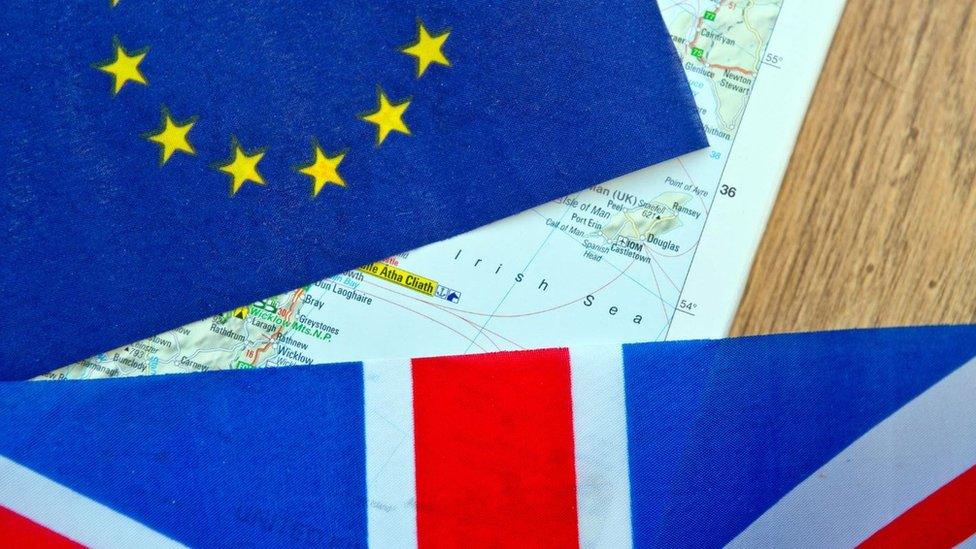Does the DUP now want a 'best of both worlds' Brexit?
- Published

"Best of both worlds" was a phrase that featured earlier in the Brexit process.
It was mainly used by supporters of the backstop - the arrangement which would have kept the whole of the UK in the EU's customs union and Northern Ireland in the EU's single market for goods.
They said this would have protected trade between NI and the rest of the UK, while also giving NI firms better access to the EU than competitors in England, Scotland and Wales.
The DUP were utterly dismissive.
In October 2018, '.
But now the DUP's rhetoric on the Brexit deal is coming very close to "best of both worlds", despite the fact the deal contains most of the features of the backstop they found so offensive.
'We would have the advantage of actually having access to the Single Market and to the UK market, and make NI an attractive place for inward investment,' the party's Agriculture Minister Edwin Poots told the ┤¾¤¾┤½├¢ on Wednesday.
"So we need to be very sure that we can actually maximise that advantage, whilst at the other side minimising the disadvantage."
The context of Mr Poots' words are important; .
Michael Gove visited Warrenpoint Harbour in August 2019
The deal means that at the end of the transition period in January, Northern Ireland will continue to follow EU rules on agricultural and manufactured goods, while the rest of the UK will not.
Additionally, the whole of the UK will leave the EU's customs union, but Northern Ireland will continue to enforce the EU's customs code at its ports.
This will mean some new processes and checks for goods entering Northern Ireland from the rest of the UK.
The UK plan lays out a vision of a light touch Irish Sea border with new checks on goods being kept to a minimum.
Mr Poots alluded to an agrifood deal the EU has with New Zealand where only a very small proportion of some goods need to be checked as they enter the single market.
'It has the potential to get right down to around 1% of commercial vehicles that are entering NI,' said Mr Poots. 'And in that case that wouldn't be particularly damaging to the economy.'
It would be wildly overstating it to say the DUP is learning to like the Brexit deal.
Instead the party is accepting it's happening, they have no way to block it and are now trying to make the best of a bad job.
"Negotiations are not yet over"
The government's implementation plan seems designed to help them in this.
Aside from pressing for the lightest touch approach to Irish Sea trade it is full of unionist-friendly language, .
It should be understood that the DUP-friendly plan is a UK proposal and the details have all still to be negotiated with the EU.
Michael Gove, the cabinet office minister, told MPs this week that there so far had been no EU "pushback" to the UK's plans.
But the DUP's unionist rivals are not so confident.
Lord Empey, the former leader of the Ulster Unionist Party, said: 'Sadly, Edwin is making the same mistake the DUP made on 2nd October last year, in assuming that what is now on the table is the final document.
'The negotiations are not yet over and I would not be surprised if the terms get worse.
'In any event, Northern Ireland will remain in a different economic sphere of influence after the transition period ends on 31st December; Brussels will make regulatory decisions which we must obey even though we have no representation or say in their creation."